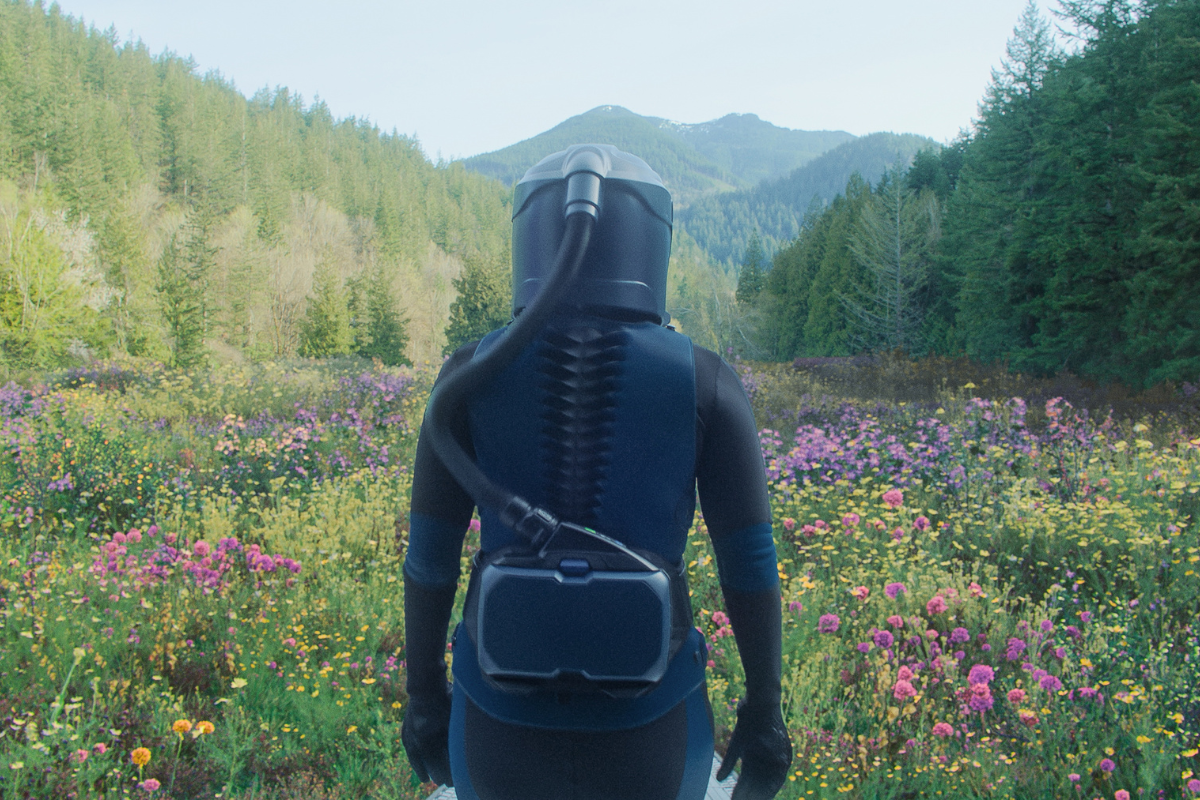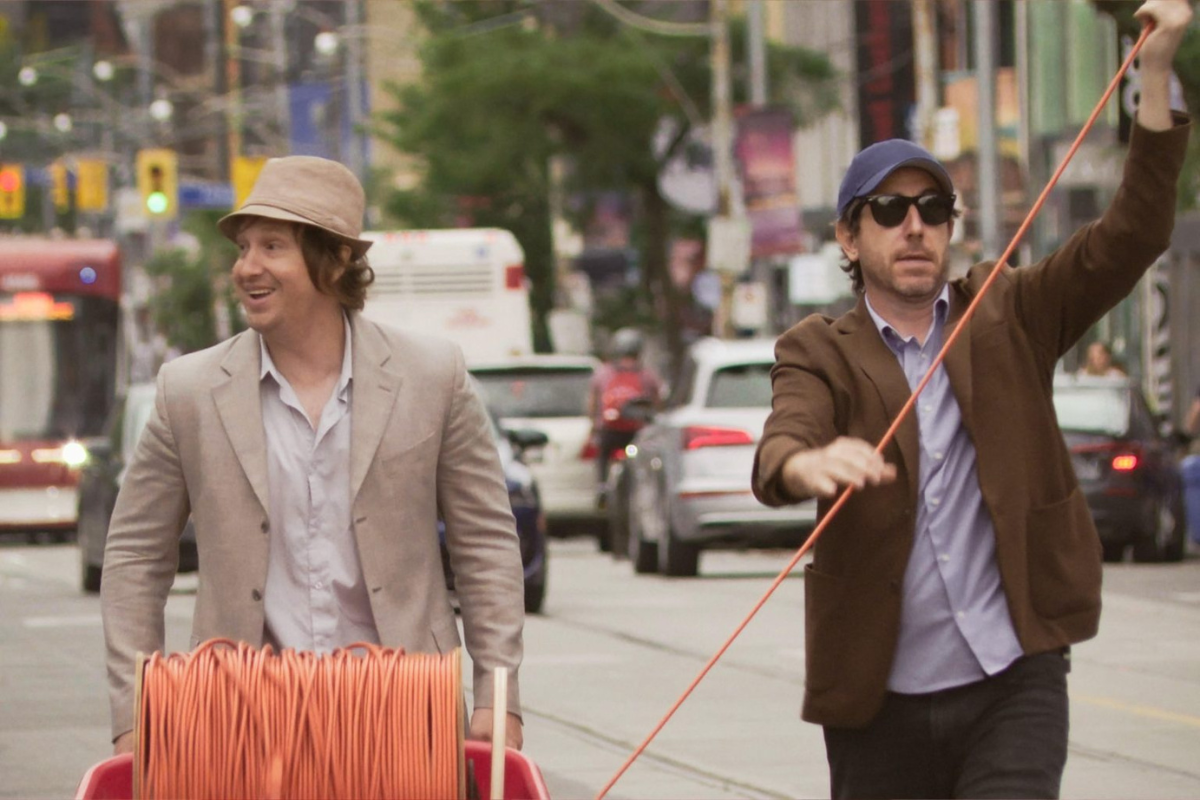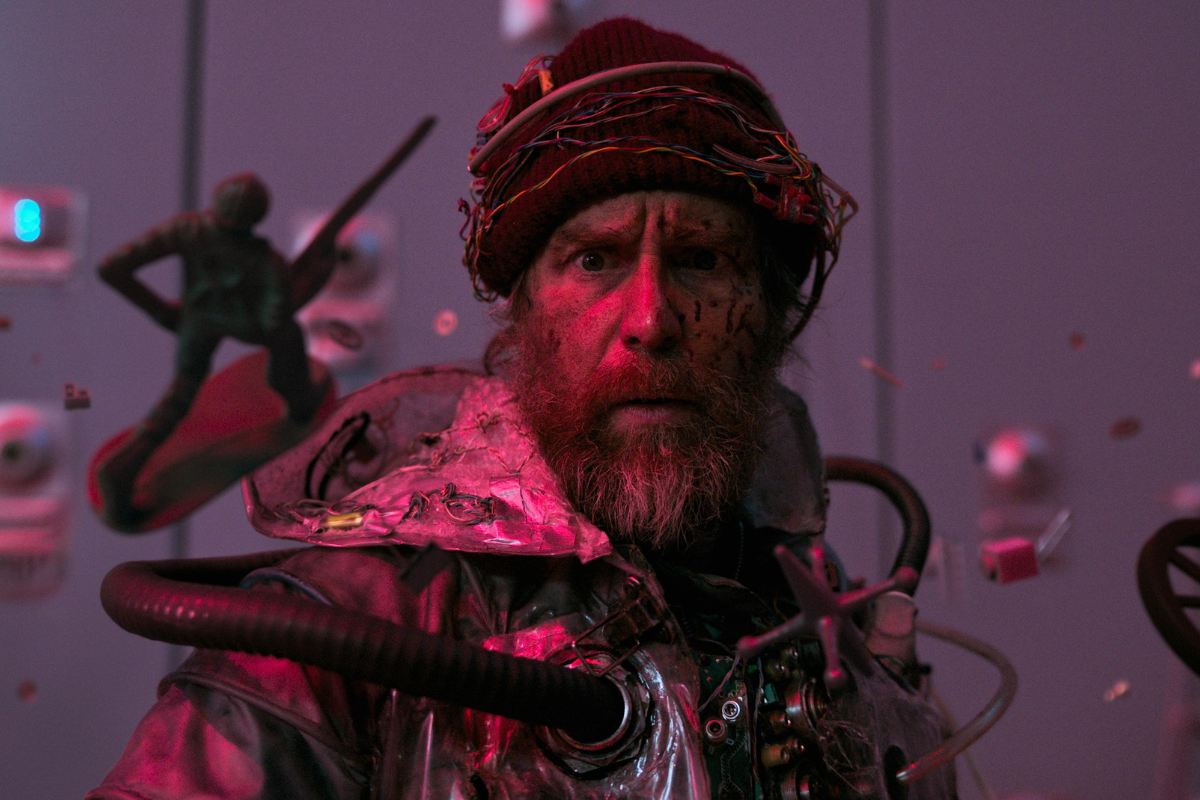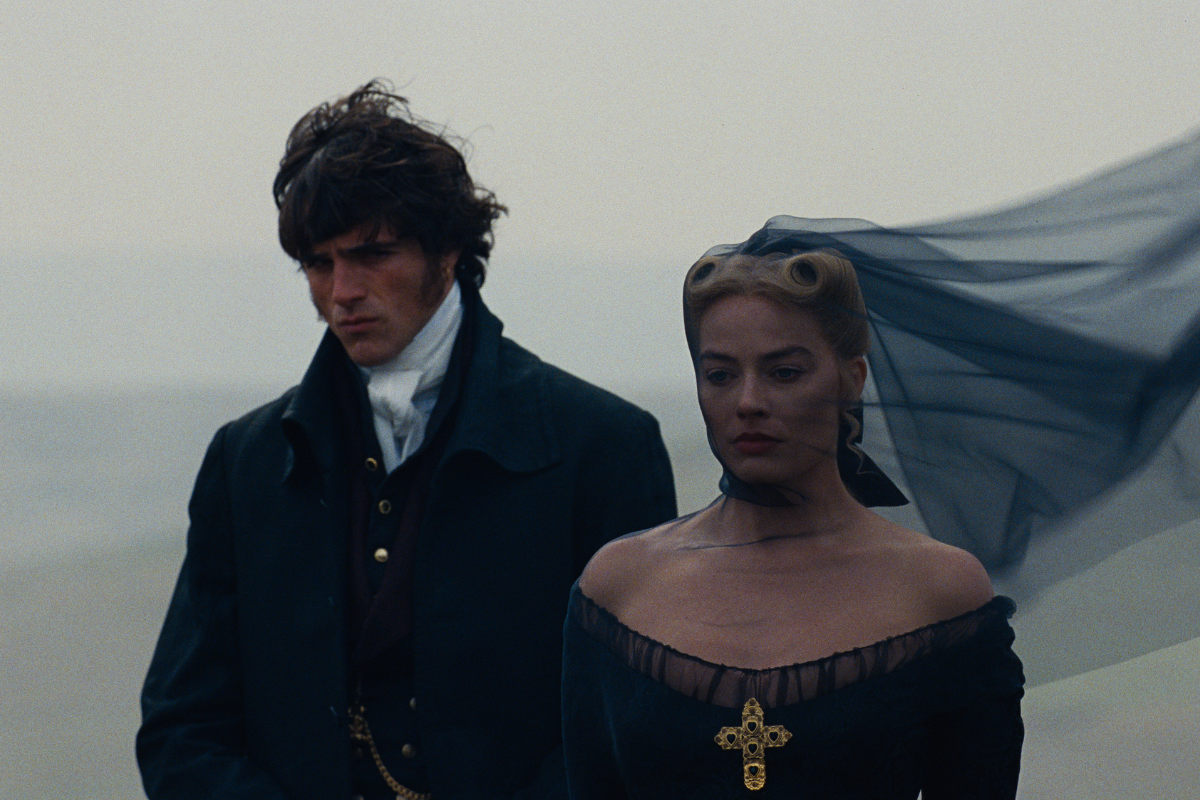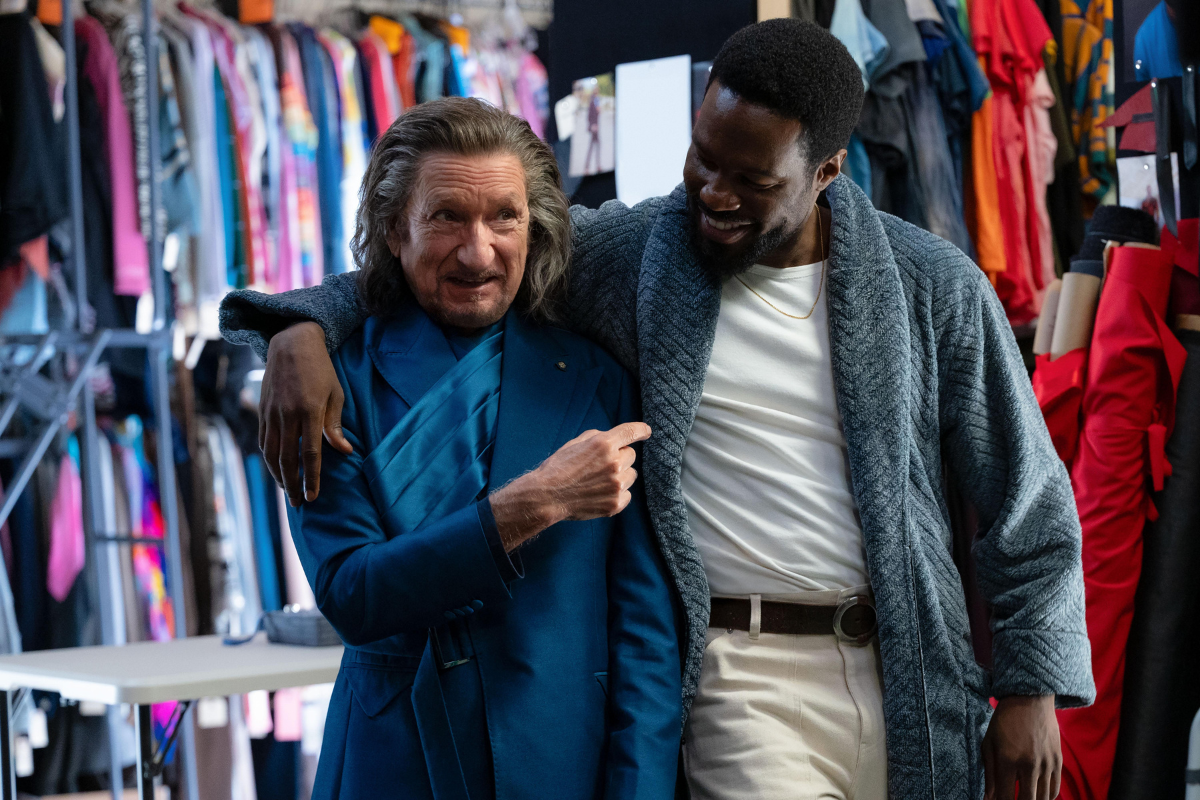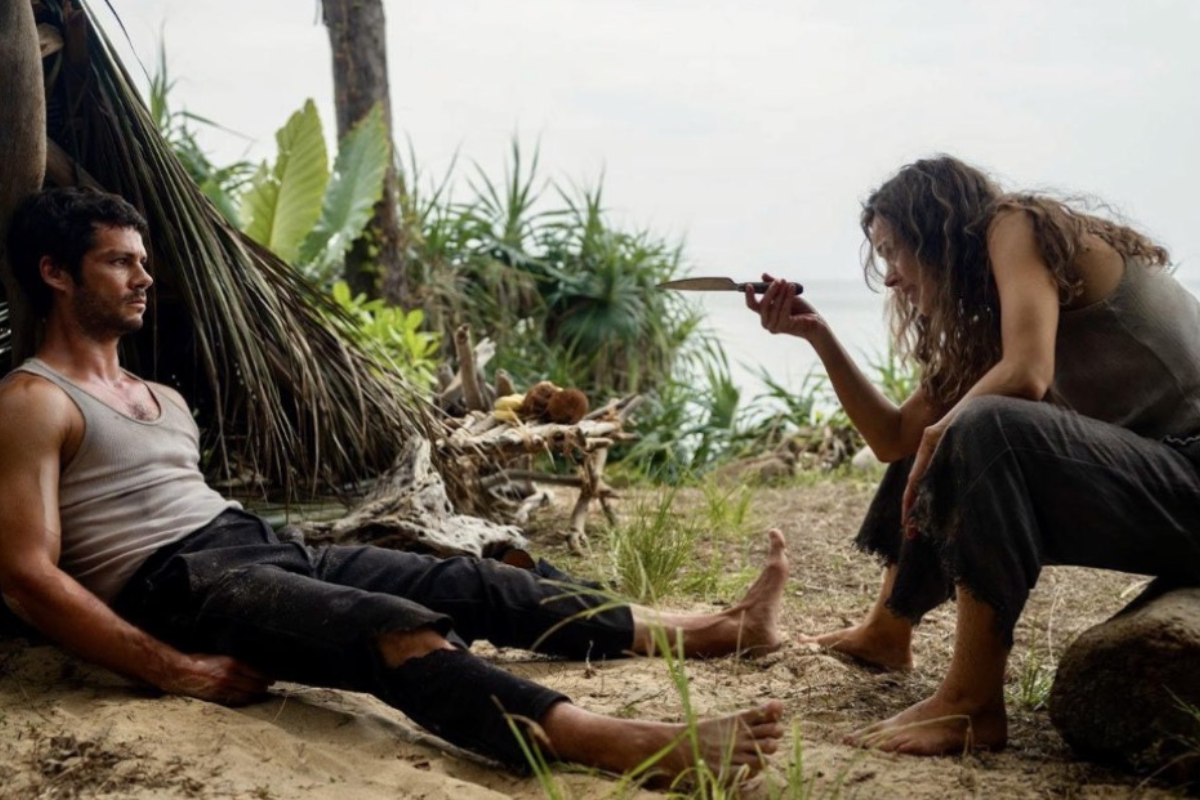‘No Other Choice’ Review
Park Chan-wook Turns Unemployment Into a Blood Sport in ‘No Other Choice’
There are any number of movies about people who try to reinvent themselves in the face of a crisis. There are far fewer movies about people who violently refuse even to consider that idea — people who would rather kill someone else than become someone else. Park Chan-wook’s bleak, brilliant, and mordantly hilarious No Other Choice is the exception that proves the rule. It is an enthralling, funny, and astonishingly well-stylized thriller that never loses sight of its ideas or the sadness at its core.
Plotted with ornate precision but unfolding with the panic of a desperate man, the film tells the story of You Man-soo (Lee Byung-hun), a middle-aged paper mill manager who discovers, far too late, that his suburban dream is about to collapse. After twenty-five years of loyalty to his company, a sudden restructuring leaves him discarded. For Man-soo, this is not just unemployment. It is a death sentence, a shattering of self-worth, a humiliation too profound to accept.
What follows is Park at his sharpest and strangest. On one level, this is a satire of South Korea’s ruthless job market and the absurdities of late-stage capitalism. On another, it is a Looney Tunes-like nightmare where slapstick violence, suffocating bureaucracy, and existential despair swirl together until they become indistinguishable. Park takes the least cinematic subject imaginable — unemployment — and transforms it into a genre trial. Every office lobby is framed like a courtroom, every rejection letter lands like a guilty verdict, every handshake withheld feels like an execution.
Lee Byung-hun is extraordinary in the role, giving one of the finest performances of his career. His Man-soo is not a villain in the traditional sense, nor is he an anti-hero we are meant to admire. He is a desperate man, hollowed out by shame and the crushing weight of expectation. Lee plays him with terrifying subtlety, shrinking incrementally with each rejection, each forced smile lingering just a second too long. This is not a man who explodes in one dramatic collapse, but one who erodes piece by piece. The punishment he suffers is not merely financial, but existential. The crime, in the eyes of society, is simply being unemployed.
Park surrounds this unraveling with formal bravura. There are transitions, superimpositions, and camera placements here that I have truly never seen before. No one is doing it like Park. His visual ingenuity continually astounds, with editing choices that left me slack-jawed more than once. A sequence midway through — involving blaring music, escalating tension, and every element of sound, movement, and choreography firing in perfect tandem — is one of the most breathtaking set pieces of the year. Park makes it all seem effortless, as though he could orchestrate such brilliance in his sleep, yet the craft on display is staggering.
But No Other Choice is not only about spectacle. It is, above all, a film of ideas. Park’s target here is not poverty, but identity, the way capitalism convinces us that our jobs are synonymous with our worth. Man-soo does not face starvation, nor does his family teeter on the brink of ruin. His children will still be clothed and fed. What terrifies him is the possibility of sliding down a rung, of losing the suburban house that symbolizes his success, of having to cancel the Netflix subscription that represents middle-class normalcy. For him, the difference between heaven and hell is as thin as the glass walls of the greenhouse where he tends to his bonsai trees.
That is the film’s most biting irony: Man-soo goes to monstrous lengths, not to save himself from destitution, but to preserve the illusion of dignity. It is a savage commentary on how systems flatten us into products of output, how a man’s worth can be obliterated by a single cost-cutting memo. In this world, survival is not about food or shelter, but about sustaining the fragile fiction of status. Park skewers this idea with sharp, dark humor, finding laughter in humiliation, and absurdity in despair.
The humor, in fact, may be the film’s most surprising element. Park has always balanced brutality with wit, but here he leans harder into slapstick, approaching moments of violence with a perversely playful touch. The absurdity of watching a man flail through increasingly desperate schemes to secure a job becomes both horrifying and hilarious. It is not that the violence is diminished; it is that the real brutality lies elsewhere, in the cold indifference of a market that treats loyalty as disposable, and people as replaceable parts.
Visually, the film is a feast. Park’s camera moves with the grace of a conductor leading a symphony, every frame composed with purpose. The cinematography makes even sterile office spaces feel oppressive, while the brutalist architecture of Man-soo’s home becomes a fortress of fragile illusions. The color palette shifts subtly as Man-soo’s desperation deepens, and the editing rhythms pulse like a heartbeat teetering on collapse. And then there is the sound design, a masterclass in its own right. Footsteps, rustling paper, the squeak of office furniture, all carry the weight of judgment. The layering of licensed music with score creates moments of overwhelming sensory immersion, turning scenes into symphonic experiences.
Adapted from Donald E. Westlake’s satirical novel “The Ax”, previously adapted by Costa-Gavras, No Other Choice expands the premise into something distinctly Park. The bones of Westlake’s satire remain, but Park infuses it with his own obsessions — identity, violence, the grotesque comedy of survival under systems that demand complicity. If Costa-Gavras made a thriller of bureaucracy, Park has made a carnival of collapse.
For all its bleakness, the film is not without empathy. Park never mocks Man-soo outright. Instead, he situates him as both victim and perpetrator, someone trapped by systems and yet complicit in perpetuating them. The tragedy is not just that Man-soo believes he has “no other choice,” but that he is willing to accept that premise rather than imagine alternatives. It is a film that mourns what we become when survival is redefined not as living, but as maintaining appearances in a system designed to discard us.
Comparisons to Bong Joon Ho’s Parasite are inevitable, but they miss the point. Where Bong examined class conflict, Park zeroes in on social survival, on the terrifying question of how far someone will go to maintain their economic status. The answer here is grimly funny, brutally violent, and deeply sad.
By the end, what lingers is not catharsis but suffocation. Park offers no release, no easy moral resolution. Instead, he leaves us with the realization that the cruelty of the system is not in dramatic collapses, but in the quiet, procedural grind of indifference. The job hunt becomes a horror film, a satire, and a tragedy all at once, and the scariest part is how familiar it feels.
No Other Choice is one of the year’s very best. Supremely well crafted, endlessly inventive, it is a savage dark comedy that speaks to our present moment with unnerving clarity. Lee Byung-hun delivers a performance for the ages, while Park Chan-wook proves, once again, that he is one of the most daring and ingenious filmmakers alive. A sick, dazzling masterwork.
No Other Choice opens in select Theaters Christmas Day. Everywhere January.


